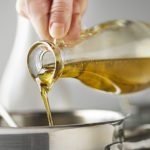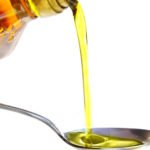Those in the business of manufacturing nutritional products and supplements know better than to make bold medical claims (even if supported by science) lest they draw the wrath of the FDA; but who would have guessed that the FDA would go after a mainstream food company like General Mills for marketing food as medicine? Yet as of May 5th, the FDA did indeed issue a warning letter to the mega-giant, stating, “The Food and Drug Administration (FDA) has reviewed the label and labeling of your Cheerios® Toasted Whole Grain Oat Cereal. FDA’s review found serious violations of the Federal Food, Drug, and Cosmetic Act (the Act) and the applicable regulations in Title 21, Code of Federal Regulations (21 CFR).”
Cheerios, a criminal? Turns out that the little O’s got a bit too bold in advertising just how healthy they are. Right on the box, there’s a claim stating, “Can lower your cholesterol 4% in 6 weeks.” Then there’s an elaboration: “Did you know that in just 6 weeks Cheerios can reduce bad cholesterol by an average of 4 percent? Cheerios is…clinically proven to lower cholesterol.”
The problem with these claims, says FDA director of Food Safety and Applied Nutrition, Stephen Sundlof, is that, “We just believe that the labeling on this particular product has gone beyond what the science supports.” Now keep in mind that there are indeed myriads of studies proving that the oat bran in Cheerios will perform exactly as advertised. But the FDA says that the cereal is “misbranded” and shouldn’t make claims about cholesterol reduction “without an approved new drug application and that it advertises usefulness for conditions that cause it to be a drug because the product is intended for use in the prevention, mitigation and treatment of disease.”
And yet, another health claim appears on the box — this one associating soluble fiber from whole grain oats with a reduced risk of coronary heart disease — an FDA-approved assertion. But the approved statement has a humble position on the back of the box, bearing a much smaller font size than the cholesterol statement, which pops from a banner on the front. And, according to the FDA warning, the wording of even the heart disease statement veers from approved language, as does wording on the General Mills website claiming that whole grains products reduce the risk of stomach and colon cancers.
General Mills stands behind the marketing, insisting that “The scientific body of evidence supporting the heart health claim was the basis for FDA’s approval of the heart health claim, and the clinical study supporting Cheerios’ cholesterol-lowering benefit is very strong.” On its website, it argues that the “lower your cholesterol 4% in 6 weeks” message has been featured on the box for more than two years, implying that since the claim hasn’t been challenged until now, it must be true. (Oh my goodness, what a blessing that would be for the alternative health industry if the two-year “rule” really was a law!)
True or not, the claims certainly helped cereal sales at General Mills, which rose 13 percent in the third quarter of this fiscal year — a huge jump in this hurting economy. According to Bruce Silverglade, director of legal affairs for the Center for Science in the Public Interest, in Washington, “Consumers are influenced by food claims on labels. To the extent that they’re misleading, it’s as bad as a doctor giving out poor medical advice.”
All of this hubbub about Cheerios comes on the heels of Federal Trade Commission charges against Kellogg’s for claiming that Frosted Mini-Wheats improve attention span in kids. (Everyone knows that sugar improves multi-tasking — if you don’t want to.) And while some political groups take umbrage at the idea that government regulators would impinge on the big industry kahunas in any way (“So I guess now the Communist-in-Chief will declare a War on Cereal,” huffs Ed Anger of the Weekly World News), certainly the cereal manufacturers aren’t experiencing anything that nutritional products companies haven’t experienced in spades.
While General Mills and Kelloggs tout that their foods cure diseases — supplement manufacturers must walk on tiptoes to avoid even hinting that their proven products might, in fact, do what they’ve been proven to do. The problem is Catch-22, which works like this when dealing with the FDA:
- You can’t make medical claims without clinical trials.
- But, Catch 22, if you have the appropriate clinical trials, you can no longer sell your product as a food or a supplement. It has to be sold as a drug. Thus, the FDA’s letter to General Mills saying they couldn’t make claims about cholesterol reduction “without an approved new drug application.”
- Which leads to the ultimate absurdity: you have to prove your health claims in order to make them. But if you do prove them, you can no longer sell your products without turning them into drugs.
- Or to put it another way, you can’t make any health claims for drinking clean water (essential for life itself) without selling it as an over-the-counter drug.
- The net result is that the actual health value of foods and supplements is legally (and not by accident) hidden from the public.
And why would this be? Who could possibly benefit? Why the pharmaceutical industry, of course. The only people allowed to make health claims for their products are those who have secured patents on those health claims. How convenient! And even better, thanks to off -label usage, pharmaceutical companies don’t even have to prove many of their claims!!!
Oh, and as a side note to this discussion, in reality, there’s little to be said in favor of cereals like Frosted Mini-Wheats or Cheerios. Though more healthy than some alternatives on the supermarket shelves, Cheerios lists sugar as the third ingredient, and modified cornstarch as the second. Neither ingredient will exactly optimize your health. The cereal also contains tripotassium phosphate, a popular ingredient in fertilizers. And while whole oats are the first ingredient, they aren’t organic. Plus, the cereal contains 190 mg of sodium per cup.
But, and here’s the capper, even if Cheerios does want to compete with Lipitor, as I’ve written before, lowering cholesterol means little in terms of reducing cardiac incidents. The connection between cholesterol and heart disease is much more tenuous than many in the medical community would have you believe. If you want to improve heart health as well as overall health, there are more fruitful avenues than the Cheerios route.
:hc











